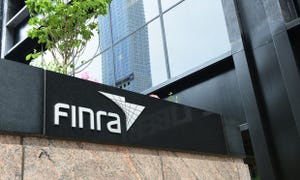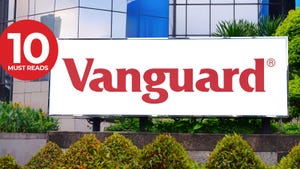TD’s $230 Billion Man Goes Maximum Gold as Volatility MountsTD’s $230 Billion Man Goes Maximum Gold as Volatility Mounts
July 28, 2016

Eric Lam and Allison McNeely
(Bloomberg) -- In a world flush with central bank stimulus and swirling with volatility, Bruce Cooper is pushing for the one asset he says he can count on: gold.
TD Asset Management’s chief investment officer is adopting a more conservative approach to focus on capital preservation. Cooper sees gold as the best bet with the global economy stuck in neutral, and as loose central bank policy, the U.K. Brexit vote, and a looming U.S. presidential election stoke demand for havens. The firm shifted to "maximum overweight" in gold for its portfolios during the second quarter from a "modest overweight" according to Cooper’s latest market outlook report.
The U.K.’s vote to leave the European Union is likely to lead to ongoing stress in Europe, Cooper said in an interview after appearing on Bloomberg TV Canada. "We turned more positive on gold at the beginning of the year and then we reinforced that in the second quarter."
Low interest rates buoying demand for gold and a potential second-half rise in crude prices bodes well for equities, Cooper said. His firm expects low to mid-single-digit returns on equity and low single-digit returns on fixed income. The role of fixed income in TD’s portfolio is more about diversification, stability and protecting against deflation than returns, he said.
‘Job One’
"Job one today is about capital preservation," he said. "It’s not about shooting the lights out."
TD Asset Management, the investment unit of Toronto-Dominion Bank, Canada’s second-largest lender, has a 10-person credit committee that wades through corporate balance sheets to pick high-quality investment-grade corporate bonds, Cooper said. They’re neutral on government bonds versus corporate credit.
“If we can pick up 100 basis points on a credit, we’re happy,” he said. “You wouldn’t look at corporate spreads and say this is the opportunity of a lifetime.”
Risky Bet
Even with recent stability in oil and the chance prices could increase to as high as $70 a barrel later this year, energy is a risky bet, he said.
“This is not a time to speculate on low-quality companies with weak balance sheets that don’t generate cash flow,” he said. “Clearly there’s a spread there. Suncor is generating cash-flow in this environment and there’s lots of companies that aren’t.”
Holding a mix of bonds is helping TD guard against “deflationary forces” emanating from Asia and Europe, he said. Although TD doesn’t expect deflation in Canada, high debt levels, disruptive technologies like Uber and AirBnB and China’s inability to reign in oversupply are contributing to a weak global outlook, he said.
"We’re cautious but not negative. This is not about canned goods and getting in the bunker," he said.
TD says a potential catalyst may be if governments make a shift toward Canada’s policy of fiscal spending as a means of stoking growth, he said.
"The two governments to watch like a hawk are Germany and the United States," he said. If Germany moves away from its traditional austerity approach or Hillary Clinton and the Democrats take power in the U.S. and unveil fiscal stimulus, that could shift the global economy into a more inflationary state.
TD is underweight the Canadian dollar on expectation that it will decline against U.S. dollar strength this year, he said.
"Between the U.S. economy looking a bit better and rates in the U.S. being a bit higher and the existential concerns about Europe, to me that feels like a recipe for the U.S. dollar being relatively firmly bid," he said.
Updates with gold weighting in second paragraph.
To contact the reporters on this story: Eric Lam in Toronto at [email protected] ;Allison McNeely in Toronto at [email protected] To contact the editors responsible for this story: Jeremy Herron at [email protected] Chris Fournier, Jacqueline Thorpe
About the Author
You May Also Like





